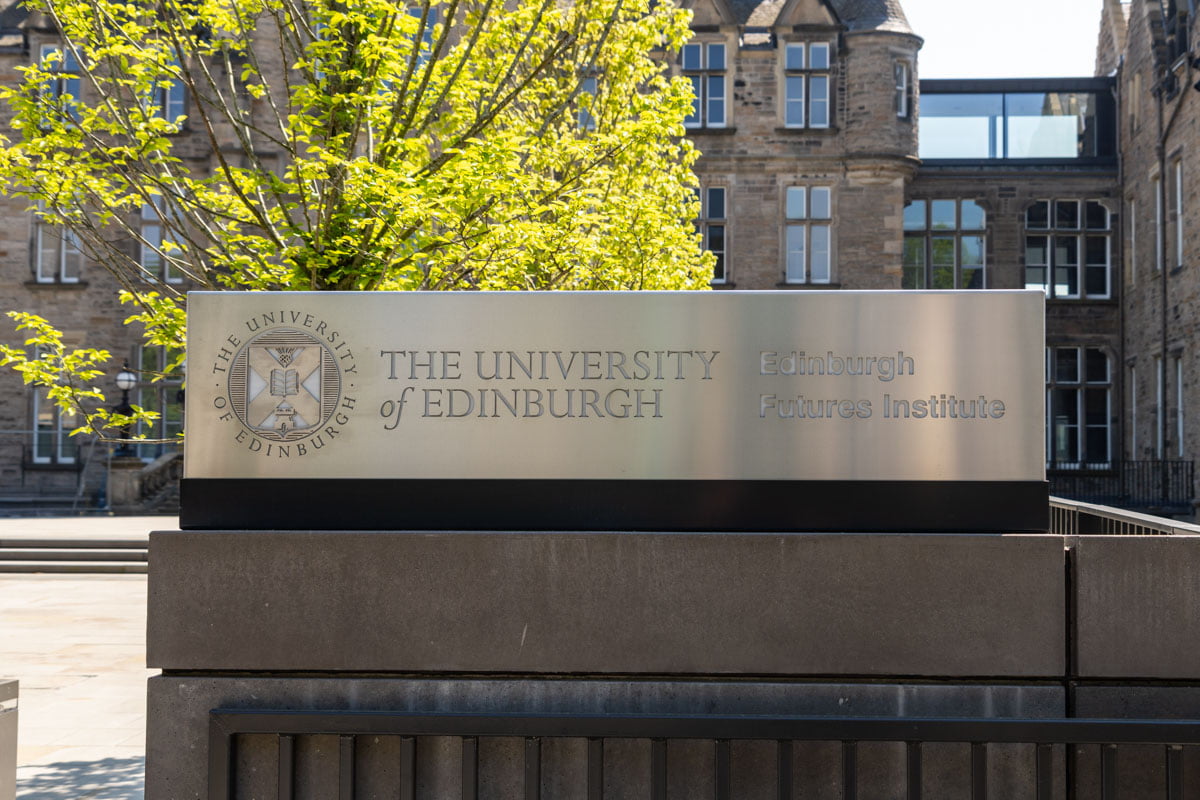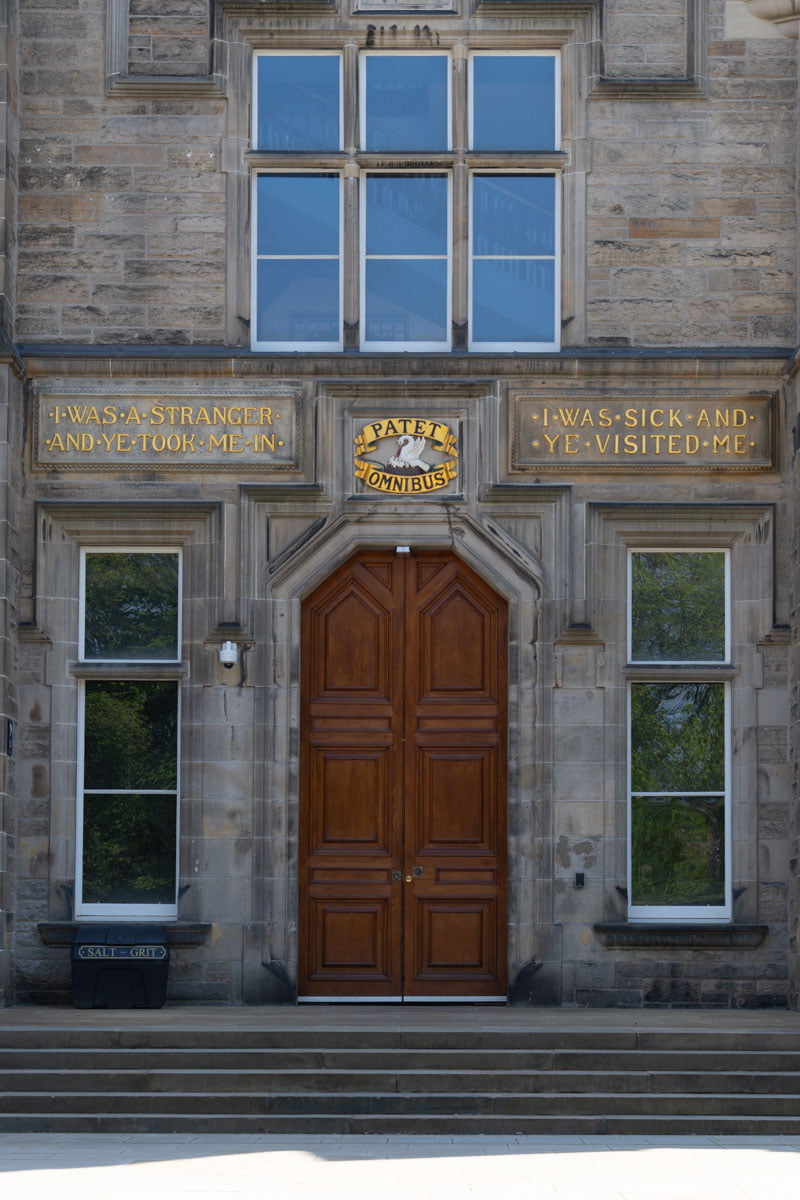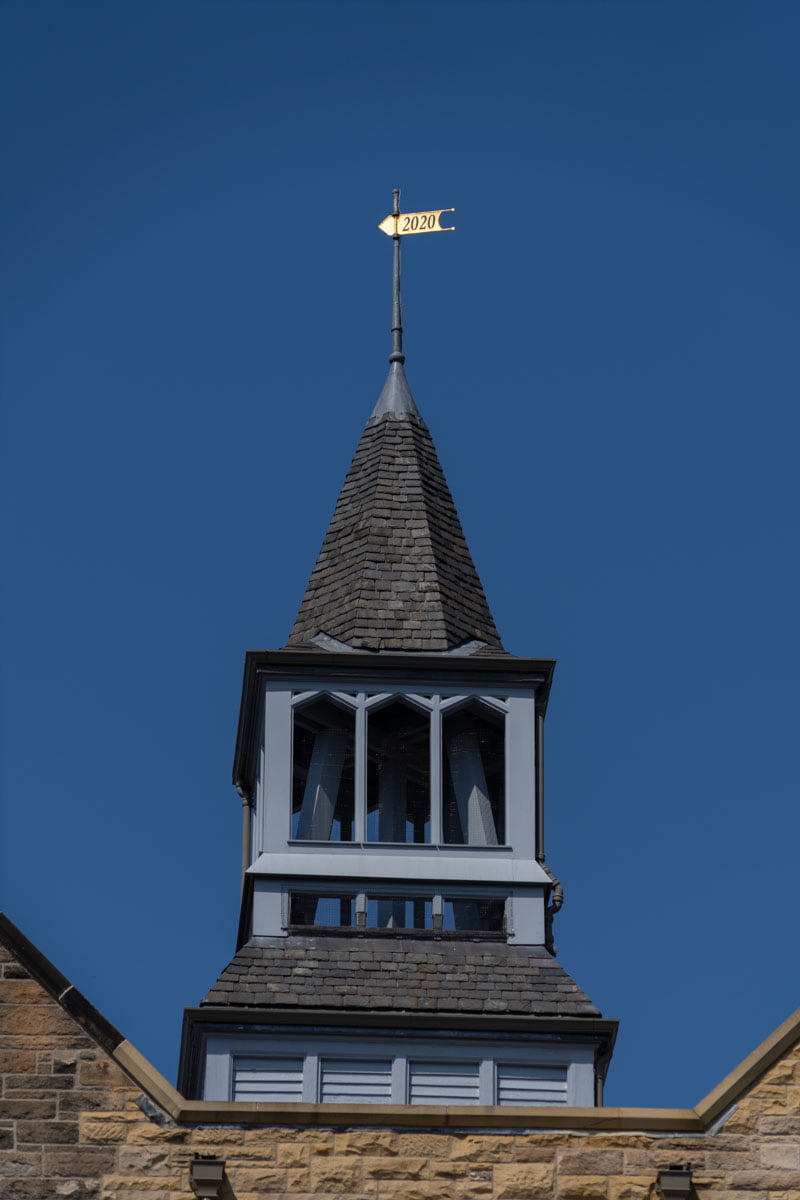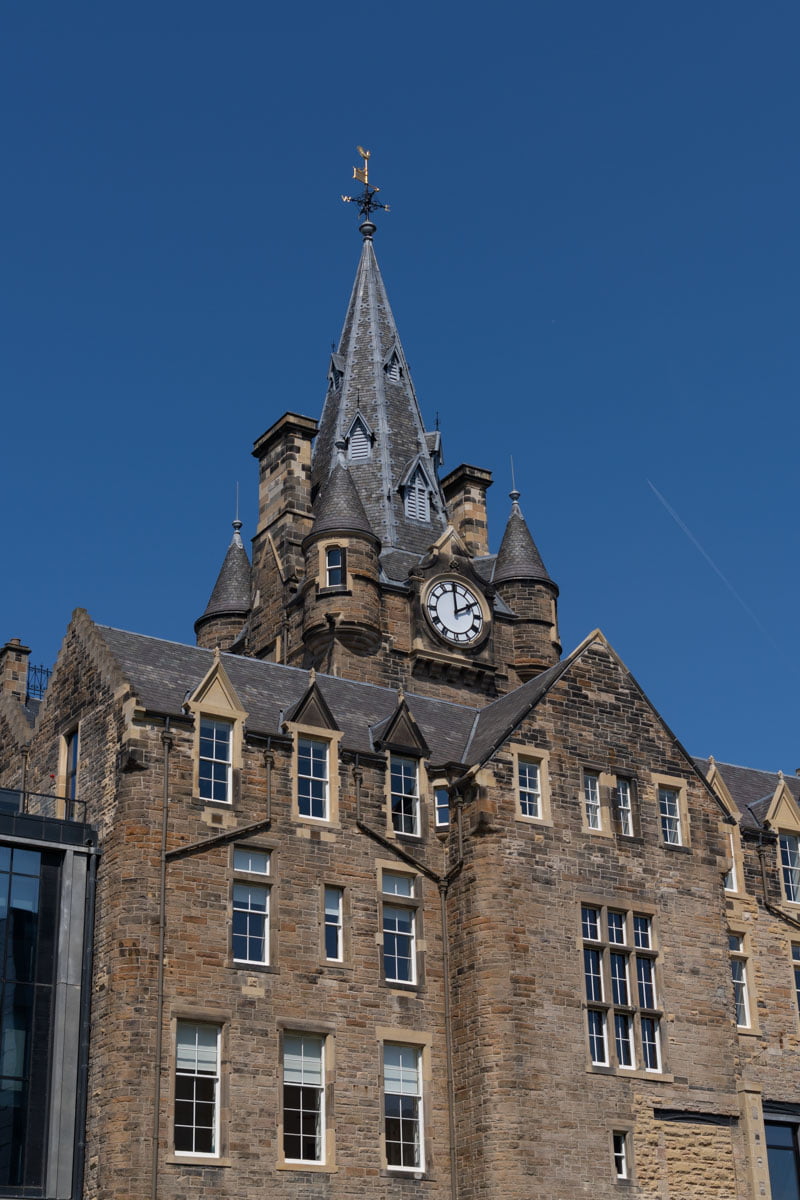Edinburgh Futures Institute is officially open
Edinburgh Futures Institute has officially opened its doors to the public in the transformed and revitalised former Royal Infirmary building at Quartermile.
The well known city landmark will officially open to the public on Monday 3 June following a comprehensive seven-year, multi-million-pound restoration.
Built in 1879, the Old Royal Infirmary housed the city’s main hospital until 2003 and was once described by The Illustrated London News as “the best planned hospital” in Britain with its wards in wings with high windows for daylight and fresh air.
Now home to the University of Edinburgh’s Edinburgh Futures Institute, the category-A listed building will bring together people finding innovative solutions to some of the world’s biggest problems.
The 20,000 square metre redevelopment is now one of the largest institutes for interdisciplinary learning, research and innovation in Europe.
Edinburgh Futures Institute is building on the University’s expertise across disciplines ranging from artificial intelligence to philosophy to deliver educational programmes, collaborative research projects and partnerships.
The Institute brings together students, researchers, partners and civic society to focus on the responsible use of data to address global challenges including ethics of artificial intelligence, social inequality and climate change.
The building, which unites modern design with restored historic architecture, will also bring benefits to the local community. Alongside new access points from Middle Meadow Walk, a new public square has been created along with a café and exhibition and performance spaces.
The building’s signature wide and airy Nightingale Wards have been retained and are now reused as teaching and workspaces.
Collaborative spaces are also available for external organisations and partners, with incubation areas for start-up businesses and labs for innovation and prototyping.
The Institute will also host a range of events and opportunities for members of the public and University of Edinburgh community.
In August, the Institute will host the Edinburgh International Book Festival and will become a permanent home for this annual event.
The Futures Institute sits within the University’s College of Arts, Humanities and Social Sciences. It is one of six innovation hubs supported by the Edinburgh and South East Scotland City Region Deal’s Data-Driven Innovation programme.
Through The University of Edinburgh’s participation in the City Region Deal, the Institute has received £56m in capital funding from the UK Government and more than £2m from The Scottish Government.
The University worked with a project design team led by AtkinsRéalis, including architects Bennetts Associates and construction partner Balfour Beatty, to restore, extend, and upgrade the building.
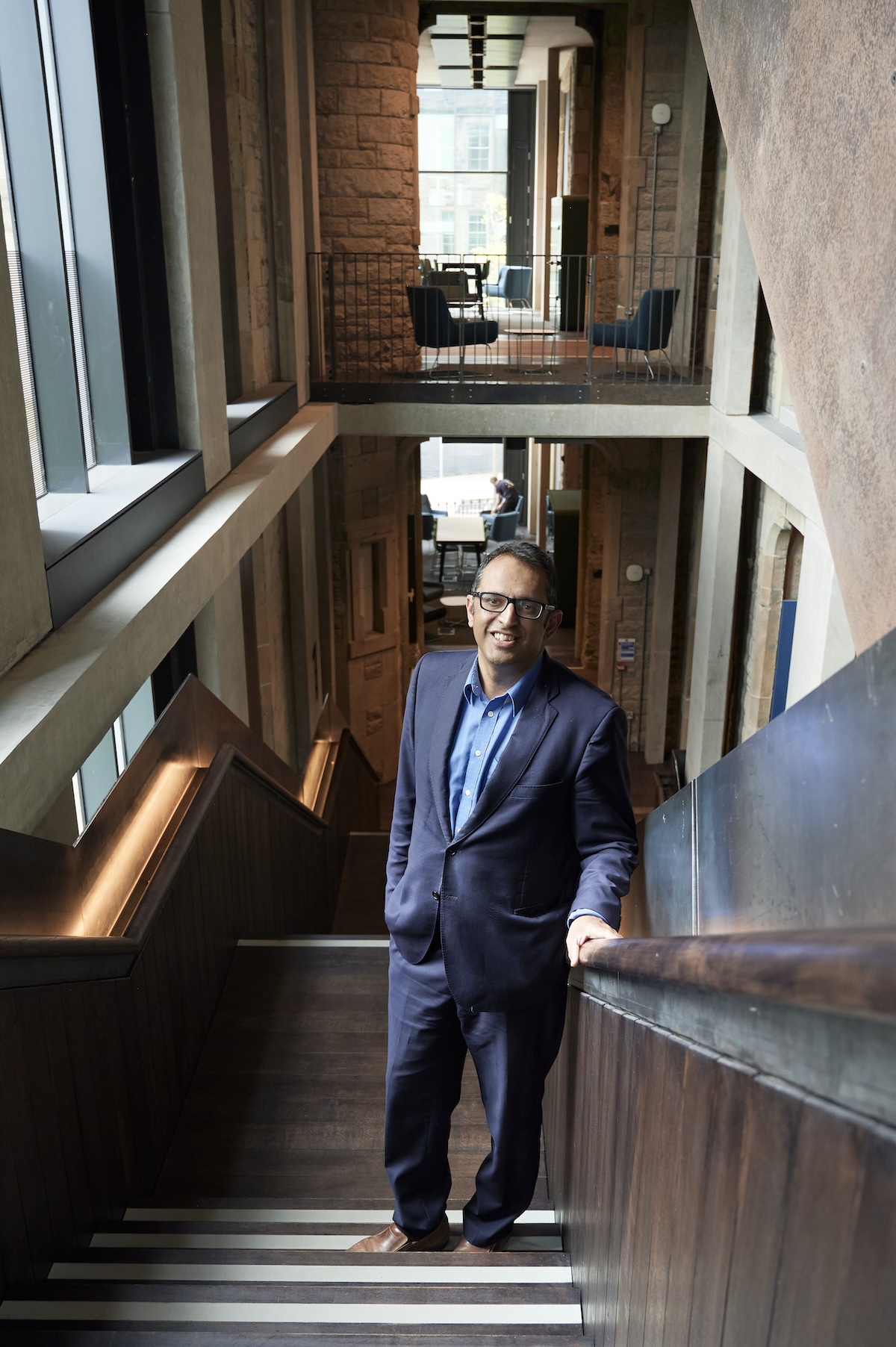
Professor Kev Dhaliwal, Interim Director of Edinburgh Futures Institute, said: “The amazing restoration of the Old Royal Infirmary has created an inspiring place for us all to collaborate. It opens up exciting opportunities to co-locate students, staff and external partners to innovate and address local and global challenges together. The Institute is a place that asks questions and strives to find solutions for the challenges of where data meets society.”
Professor Sir Peter Mathieson, Principal and Vice-Chancellor at the University of Edinburgh, said: “So many people in Edinburgh have a connection to this historic building and we want to ensure that it fulfils the pledge set in stone above the main entrance, ‘patet omnibus’ – open to all. Edinburgh Futures Institute’s new home will allow us to connect the University community with local and global groups, organisations and industries in new and meaningful ways.”

